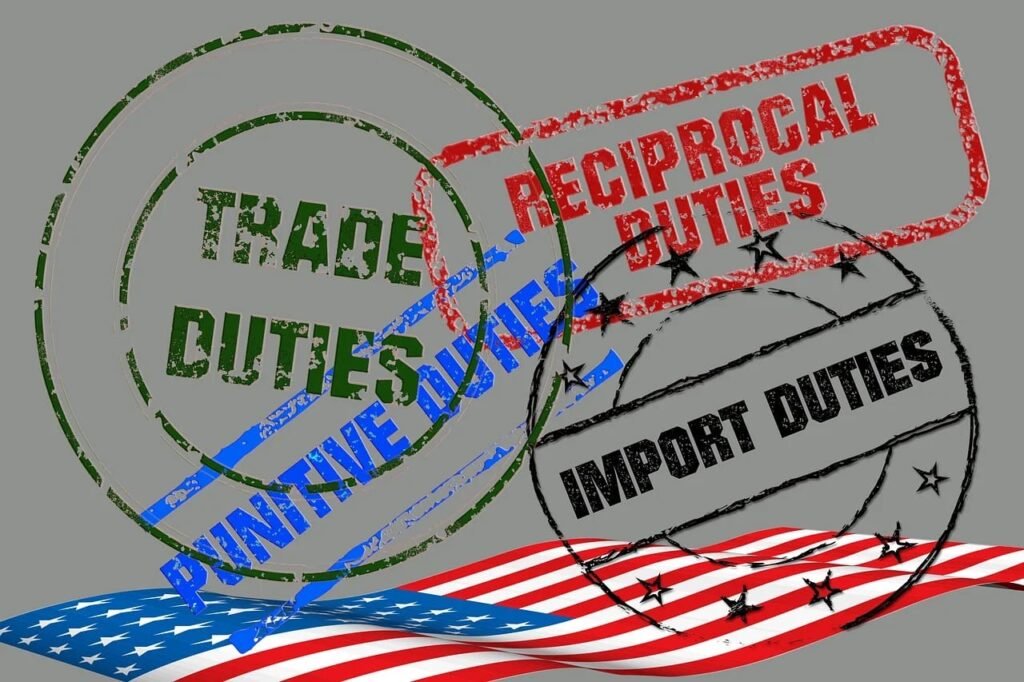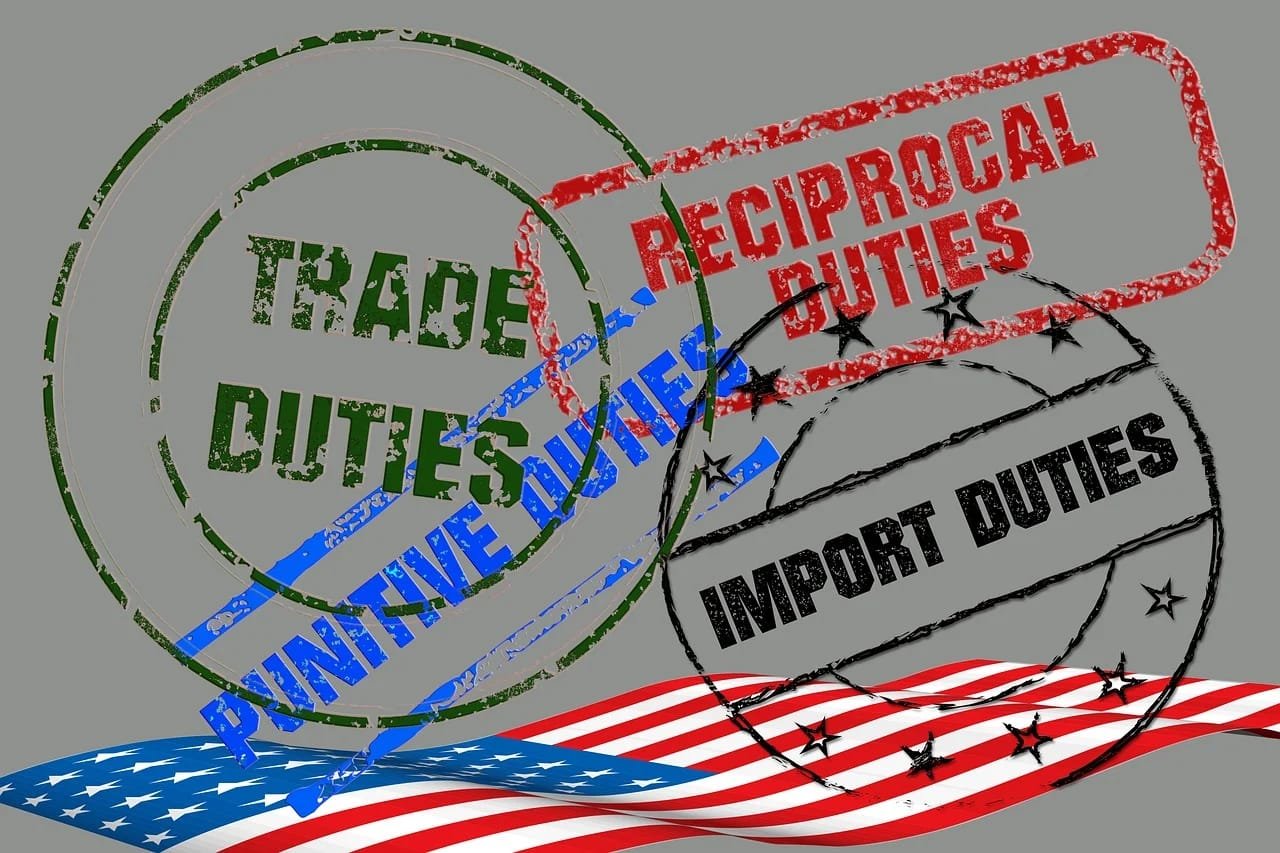The resurgence of U.S. tariffs under President Donald Trump’s second term has reignited global trade tensions, with significant implications for tax policies worldwide. Tensions have eased as of late, but the Treasury Secretary highlighted that negotiations with the EU are not progressing as expected.
For that matter, Cyprus accountants are closely monitoring these developments and would like to discuss whether the EU braces for potential economic and fiscal repercussions.

Alt-text: US tariffs and the EU
Source: https://pixabay.com/illustrations/usa-america-trade-tariffs-9512520/
Accountants in Cyprus Analyse the Trade War’s Tax Implications
The U.S. administration’s recent imposition of a 10% tariff on most EU exports, announced on April 2, 2025, and the subsequent threat to increase it to 20%, has prompted the European Union to consider retaliatory measures. These include potential tariffs on U.S. goods worth up to €95 billion, targeting sectors such as aircraft, vehicles, and chemicals.
Cyprus accountants highlight that these trade measures could disrupt the EU’s tax landscape. The increased cost of imports may lead to higher consumer prices, potentially affecting VAT revenues. Moreover, the uncertainty surrounding trade policies could influence corporate tax planning and investment decisions within the EU.
VAT Under Scrutiny Amid Trade Tensions
A significant point of contention is the U.S. administration’s critique of the EU’s Value-Added Tax (VAT) system. President Trump has argued that VAT rebates on exports give European companies an unfair advantage, effectively acting as a trade barrier. Negotiations on this matter are ongoing, for the time being, and there is no concrete resolution.
However, economists and tax experts, including those among accountants in Cyprus, contend that VAT is a consumption tax applied equally to domestic and imported goods, and rebates on exports are standard practice to avoid double taxation. They caution that mischaracterizing VAT could lead to misguided policy decisions and further strain international trade relations.
Economic Impact and Fiscal Responses
The potential economic fallout from escalating tariffs is substantial. Analysts estimate that a 25% U.S. tariff on EU imports could reduce EU exports to the U.S. by up to 17%, leading to a 0.4% contraction in the EU economy. Such a downturn could impact tax revenues and necessitate adjustments in fiscal policies across member states.
Cyprus accountants are advising businesses to prepare for potential changes in tax regulations and to consider the implications of shifting supply chains. They emphasize the importance of strategic tax planning to navigate the evolving trade environment.
Navigating the Uncertainty
As the EU and U.S. continue negotiations, with a 90-day pause on new tariffs set to expire in July, the outcome remains uncertain. Accountants in Cyprus stress the need for vigilance and adaptability in tax planning. They recommend that businesses stay informed about policy developments and engage with tax professionals to assess risks and opportunities.
In conclusion, the current trade tensions underscore the interconnectedness of international trade and tax policies. Cyprus accountants play a crucial role in helping businesses understand and respond to these challenges, ensuring compliance and strategic positioning in a complex global landscape.











